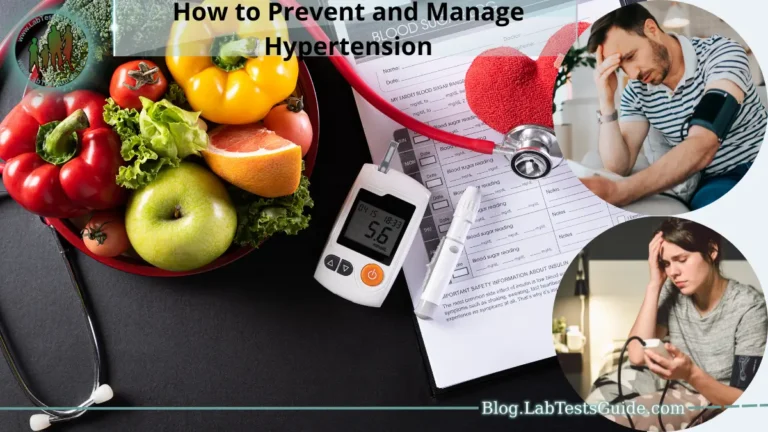Maintaining a healthy hormonal balance is vital for overall well-being and optimal functioning of the body. Hormones play a crucial role in regulating numerous physiological processes, including metabolism, reproduction, growth, and mood. When hormones are in harmony, the body operates smoothly, allowing us to feel energetic, mentally sharp, and emotionally stable. However, imbalances in hormonal levels can lead to a wide range of health issues, affecting both men and women of all ages. Understanding how to support and maintain hormonal balance is key to promoting a healthier and more fulfilling life.

In this comprehensive guide, we will delve into the various factors that influence hormonal balance, from lifestyle and dietary choices to managing stress and environmental considerations. You will learn about the signs and symptoms of hormonal imbalances and how to recognize when seeking medical advice is necessary. Moreover, we’ll explore the essential role of diet, nutrition, and exercise in supporting hormonal health, as well as natural remedies and supplements that can aid in hormonal regulation.
What Is Hormonal Balance?
- Definition: Hormonal balance refers to the state in which the body’s endocrine system produces and regulates hormones at appropriate levels to support overall health and physiological functions.
- Hormones: Hormones are chemical messengers produced by various glands in the endocrine system. They travel through the bloodstream, influencing and coordinating different processes in the body.
- Importance: Maintaining hormonal balance is essential for numerous bodily functions, including metabolism, growth, reproduction, sleep, mood regulation, and immune system function.
- Delicate Equilibrium: Hormonal balance relies on a delicate equilibrium, where each hormone must be present in the right amount and function in harmony with others.
- Fluctuations: Hormone levels naturally fluctuate throughout life due to age, stress, menstrual cycles (in females), and other factors. However, significant imbalances can lead to various health issues.
- Hormonal Imbalance: When hormones are overproduced or underproduced, or their receptors are not functioning correctly, it can result in hormonal imbalances, causing symptoms and health complications.
- Individual Variations: Each person’s hormonal balance is unique, and what may be considered normal for one individual may differ from another.
- External Factors: Lifestyle choices, diet, physical activity, sleep patterns, and exposure to environmental toxins can influence hormonal balance.
- Addressing Imbalances: Identifying and addressing hormonal imbalances often requires medical evaluation, lifestyle adjustments, and, in some cases, hormone therapy or medication.
- Long-Term Impact: Chronic hormonal imbalances can contribute to conditions such as polycystic ovary syndrome (PCOS), thyroid disorders, diabetes, and mood disorders. Conversely, maintaining hormonal balance promotes overall well-being and optimal health.
How to Achieve and Maintain Hormonal Balance:
- Balanced Diet: Consume a nutritious and balanced diet to support hormonal health. Include a variety of fruits, vegetables, whole grains, lean proteins, and healthy fats. Minimize processed foods, sugary snacks, and excessive caffeine intake.
- Regular Exercise: Engage in regular physical activity, as it can help regulate hormones and reduce stress. Aim for a mix of aerobic exercises, strength training, and flexibility exercises for overall hormonal well-being.
- Stress Management: Practice stress-reducing techniques such as meditation, deep breathing, yoga, or spending time in nature. Chronic stress can lead to hormonal imbalances, so finding effective ways to manage stress is crucial.
- Quality Sleep: Prioritize getting enough restorative sleep each night. Lack of sleep can disrupt hormone production and lead to imbalances. Aim for 7-9 hours of quality sleep per night.
- Limit Exposure to Hormone Disruptors: Be aware of environmental toxins that can disrupt hormonal balance. Reduce exposure to chemicals found in certain plastics, pesticides, and household products.
- Hormone Testing: If you suspect a hormonal imbalance, consider getting hormone levels tested by a healthcare professional. This can help identify specific imbalances and guide appropriate treatment.
- Maintain a Healthy Weight: Strive to maintain a healthy weight through a combination of diet and exercise. Excess body fat, especially around the abdomen, can contribute to hormonal imbalances.
- Avoid Crash Diets: Extreme or crash dieting can disrupt hormone production and lead to imbalances. Instead, focus on sustainable, long-term changes to your eating habits.
- Herbal Supplements and Adaptogens: Some herbal supplements and adaptogens may support hormonal balance. Consult with a healthcare professional before incorporating them into your routine.
- Regular Health Checkups: Schedule regular checkups with your healthcare provider to monitor your overall health, including hormone levels, and address any concerns promptly.
- Hormone Replacement Therapy (HRT): For individuals with significant hormonal imbalances, hormone replacement therapy may be considered under medical supervision.
- Limit Alcohol and Caffeine: Excessive alcohol and caffeine consumption can impact hormonal health. Moderation is key, and water should be the primary beverage choice.
- Seek Professional Advice: If you experience persistent symptoms of hormonal imbalance, seek guidance from a healthcare professional with expertise in endocrinology or hormone health.
Recognizing Signs of Hormonal Imbalance:
- Irregular Menstrual Cycle: For females, irregular periods, heavy or light menstrual flow, or missing periods altogether may indicate a hormonal imbalance, such as polycystic ovary syndrome (PCOS) or thyroid issues.
- Unexplained Weight Changes: Sudden weight gain or loss without any apparent reason or drastic changes in body composition could be a sign of hormonal disruption.
- Mood Swings and Emotional Instability: Fluctuations in hormone levels can lead to mood swings, irritability, anxiety, or unexplained feelings of sadness.
- Fatigue and Low Energy: Persistent fatigue, lack of energy, and difficulty in staying alert and focused may be linked to hormonal imbalances, especially involving the thyroid and adrenal glands.
- Sleep Disturbances: Trouble falling asleep, staying asleep, or experiencing restless sleep could be related to imbalances in hormones like melatonin, cortisol, or estrogen.
- Changes in Libido: A sudden decrease or increase in sex drive may be associated with hormonal changes, particularly in testosterone and estrogen levels.
- Skin Issues: Hormonal imbalances can contribute to skin problems such as acne breakouts, excessive oiliness, or dryness.
- Hair Loss or Excessive Hair Growth: Changes in hair growth patterns, including hair loss on the scalp or excessive hair growth on the face and body, may be indicative of hormonal issues.
- Digestive Problems: Hormonal imbalances can affect digestion, leading to symptoms like bloating, constipation, or diarrhea.
- Temperature Sensitivity: Frequent hot flashes or cold chills, unrelated to external factors, may signal hormonal fluctuations, especially during menopause for women.
- Changes in Breast Tissue: Noticeable changes in breast size, tenderness, or lumps might be linked to hormonal changes.
- Decreased Bone Density: A decrease in bone density, leading to osteoporosis, may result from hormonal imbalances, particularly in women during menopause.
- Reduced Muscle Mass: Hormonal disruptions, especially related to testosterone, can lead to a decrease in muscle mass and strength.
- Brain Fog and Cognitive Issues: Difficulty concentrating, memory lapses, and brain fog may be related to hormonal changes, particularly in thyroid hormone levels.
Factors Affecting Hormonal Balance:
- Age: Hormonal fluctuations occur naturally at different life stages, such as puberty, pregnancy, menopause (in women), and andropause (in men). These age-related changes can impact hormonal balance.
- Stress: Chronic or excessive stress can lead to the overproduction of cortisol, the primary stress hormone. Elevated cortisol levels can disrupt the balance of other hormones in the body.
- Diet and Nutrition: Poor dietary choices, excessive sugar and processed food consumption, and nutrient deficiencies can affect hormone production and regulation.
- Physical Activity: Lack of regular exercise or excessive intense exercise can impact hormone levels, particularly sex hormones and stress hormones.
- Sleep Patterns: Disrupted or inadequate sleep can disrupt the body’s hormonal rhythms, affecting hormones like melatonin, cortisol, and growth hormones.
- Environmental Toxins: Exposure to endocrine-disrupting chemicals found in certain plastics, pesticides, cosmetics, and household products can interfere with hormone production and function.
- Body Weight: Being underweight or overweight can disrupt hormonal balance, particularly affecting insulin, sex hormones, and thyroid hormones.
- Medications: Certain medications, such as contraceptives, hormone replacement therapies, and corticosteroids, can influence hormone levels.
- Medical Conditions: Various medical conditions, including polycystic ovary syndrome (PCOS), thyroid disorders, diabetes, and adrenal gland disorders, can lead to hormonal imbalances.
- Genetics: Individual genetic makeup can predispose some people to hormone-related conditions or influence how their bodies respond to hormonal changes.
- Hormone-Disrupting Lifestyle: Smoking, excessive alcohol consumption, and drug use can interfere with hormonal regulation.
- Reproductive Changes: Events like pregnancy, childbirth, and breastfeeding can lead to temporary shifts in hormone levels.
- Psychological Factors: Emotional and mental health can influence hormone balance, with conditions like depression and anxiety impacting certain hormones.
- Menstrual Cycle: Women experience hormonal fluctuations throughout their menstrual cycle, and any irregularities or conditions affecting the ovaries can disrupt hormonal balance.
Diet and Nutrition for Hormonal Health:
- Balanced Macronutrients: Ensure your diet includes a balance of carbohydrates, proteins, and fats. Each macronutrient plays a role in hormone production and regulation. Opt for whole grains, lean proteins (such as poultry, fish, tofu, and legumes), and healthy fats (like avocados, nuts, seeds, and olive oil).
- Essential Micronutrients: Incorporate foods rich in essential vitamins and minerals that support hormonal health. These include:
- Vitamin D: Important for hormone production and immune function. Get sunlight exposure and consume vitamin D-rich foods like fatty fish, fortified dairy, and eggs.
- Omega-3 Fatty Acids: Found in fish, flaxseeds, and walnuts, they aid in reducing inflammation and support hormonal balance.
- Magnesium: Helps with hormone production and relaxation. Sources include leafy greens, nuts, seeds, and whole grains.
- Zinc: Supports reproductive hormones and can be found in meat, seafood, nuts, and seeds.
- B Vitamins: Essential for energy metabolism and hormone production. Include sources like whole grains, leafy greens, and animal products.
- Fiber: Consume an adequate amount of fiber, as it helps regulate blood sugar levels and aids in removing excess hormones from the body. Fruits, vegetables, whole grains, and legumes are excellent sources of fiber.
- Phytoestrogens: Some plant-based foods contain compounds called phytoestrogens, which can mimic estrogen in the body. These may help balance hormone levels. Foods like soy products, flaxseeds, and chickpeas are rich in phytoestrogens.
- Limit Sugar and Processed Foods: High sugar and processed food intake can cause insulin spikes and disrupt hormonal balance. Reduce consumption of sugary snacks, sodas, and processed meals.
- Adequate Protein Intake: Protein is essential for hormone synthesis. Be sure to consume enough protein from various sources to support hormone production.
- Healthy Fats: Include sources of healthy fats like avocados, nuts, seeds, and olive oil. Fats are vital for hormone production and cellular health.
- Limit Caffeine and Alcohol: Excessive caffeine and alcohol consumption can affect hormone levels and interfere with hormone regulation. Consume these beverages in moderation.
- Stay Hydrated: Drink plenty of water to support overall bodily functions, including hormone transportation and regulation.
- Mindful Eating: Pay attention to hunger and fullness cues, and avoid emotional eating. Stress eating can impact hormones and contribute to weight fluctuations.
- Meal Timing: Aim to eat regular meals and avoid prolonged periods of fasting, as irregular eating patterns can disrupt hormone levels.
Regular Exercise and Hormonal Balance:
- Endorphins and Mood Regulation: Exercise triggers the release of endorphins, which are neurotransmitters that promote feelings of happiness and reduce stress and anxiety. This positive impact on mood helps maintain a balanced hormonal state.
- Cortisol Regulation: Physical activity can help regulate cortisol levels, the primary stress hormone. By engaging in regular exercise, you can better manage stress and prevent excessive cortisol production, which could otherwise disrupt hormonal balance.
- Insulin Sensitivity: Exercise improves insulin sensitivity, allowing cells to better respond to insulin’s actions. This helps stabilize blood sugar levels and contributes to hormonal balance, particularly for individuals with insulin resistance or type 2 diabetes.
- Weight Management: Regular exercise aids in weight management by burning calories and increasing metabolism. Maintaining a healthy weight is essential for hormonal health, as excess body fat can lead to hormonal imbalances, especially involving insulin and sex hormones.
- Growth Hormone Release: Certain types of exercise, such as strength training and high-intensity interval training (HIIT), can stimulate the release of growth hormone, which plays a crucial role in tissue repair, muscle growth, and overall cellular health.
- Thyroid Function: Physical activity can support thyroid function and help individuals with hypothyroidism or subclinical hypothyroidism to improve their hormonal status.
- Reproductive Hormones: For women, regular exercise can have a positive impact on reproductive hormones, potentially reducing the risk of conditions like polycystic ovary syndrome (PCOS) and supporting regular menstrual cycles.
- Testosterone and Estrogen Balance: In both men and women, regular exercise can contribute to the balance of sex hormones, including testosterone and estrogen, supporting reproductive health and overall well-being.
- Bone Health: Weight-bearing exercises, such as walking, jogging, and resistance training, promote bone density and reduce the risk of osteoporosis, a condition associated with hormonal changes during menopause and aging.
- Sleep Improvement: Engaging in regular physical activity can lead to better sleep quality and duration, which is essential for maintaining hormonal balance, especially regarding cortisol and melatonin levels.
- Metabolic Health: Exercise helps improve metabolic health, supporting the regulation of hormones involved in metabolism, appetite, and energy balance.
- Cardiovascular Health: Exercise contributes to cardiovascular health, improving blood circulation and reducing the risk of conditions that can impact hormonal balance, such as heart disease and hypertension.
Managing Stress for Hormonal Health:
- Mindfulness and Meditation: Practice mindfulness and meditation techniques regularly to reduce stress and promote relaxation. Mindfulness involves being fully present in the moment, while meditation encourages a calm and focused state of mind.
- Deep Breathing Exercises: Engage in deep breathing exercises, such as diaphragmatic breathing or box breathing, to activate the body’s relaxation response and reduce stress hormones like cortisol.
- Regular Exercise: Incorporate regular physical activity into your routine, as exercise helps reduce stress hormones and releases endorphins, which are natural mood elevators.
- Yoga: Yoga combines physical postures, breathing exercises, and meditation to promote stress reduction and hormonal balance.
- Time Management: Plan your daily activities and prioritize tasks to reduce feelings of overwhelm and stress.
- Social Support: Spend time with friends and loved ones and engage in activities that bring joy and connection, as social support can buffer against stress.
- Nature and Outdoor Time: Spend time in nature, as it can have a calming and stress-reducing effect on the body and mind.
- Hobbies and Creativity: Engage in hobbies and creative pursuits that bring you joy and help distract from stressors.
- Limit Stimulants: Minimize the consumption of caffeine and other stimulants, as they can exacerbate feelings of anxiety and stress.
- Sleep Hygiene: Prioritize getting enough restful sleep each night, as sleep plays a significant role in managing stress and maintaining hormonal balance.
- Set Boundaries: Learn to say no to excessive commitments and set boundaries to avoid overwhelming yourself with responsibilities.
- Cognitive Behavioral Therapy (CBT): Consider seeking support from a therapist trained in CBT, as it can help change negative thought patterns and improve coping strategies for stress management.
- Laughter and Humor: Engage in activities that make you laugh and bring humor into your daily life, as laughter can reduce stress hormones and improve mood.
- Progressive Muscle Relaxation: Practice progressive muscle relaxation to release physical tension and promote a sense of calmness.
- Avoid Overthinking: Try not to dwell on negative thoughts or stressors; instead, focus on problem-solving and finding positive solutions.
Environmental Toxins and Hormones:
- Endocrine-Disrupting Chemicals (EDCs): Environmental toxins, also known as EDCs, are substances that interfere with the endocrine system’s function. These chemicals can mimic, block, or alter the body’s natural hormones, leading to hormonal imbalances and adverse health effects.
- Sources of EDCs: EDCs can be found in various products, such as plastics, pesticides, personal care products, cleaning agents, and flame retardants. They can also be present in air and water due to industrial pollution and agricultural runoff.
- Impact on Hormones: EDCs can disrupt the production, release, transport, metabolism, and elimination of hormones. They may affect hormones like estrogen, testosterone, thyroid hormones, insulin, and more.
- Hormone Mimicry: Some EDCs have a similar structure to natural hormones, allowing them to bind to hormone receptors in the body and trigger hormonal responses, leading to unintended effects.
- Hormone Blockage: Other EDCs can block hormone receptors, preventing natural hormones from binding and functioning correctly.
- Hormone Alteration: EDCs may modify the metabolism or breakdown of hormones, leading to abnormal hormone levels.
- Fetal and Early-Life Exposure: Exposure to EDCs during critical developmental periods, such as fetal development and early childhood, can have long-lasting effects on hormonal health and contribute to various health issues later in life.
- Reproductive Health: EDCs are associated with reproductive problems, including infertility, reduced sperm count, menstrual irregularities, and an increased risk of certain reproductive cancers.
- Thyroid Dysfunction: EDCs can interfere with thyroid function, leading to hypothyroidism or other thyroid-related disorders.
- Metabolic Disorders: Exposure to EDCs has been linked to metabolic disorders such as obesity and type 2 diabetes, as these chemicals can disrupt insulin signaling and lipid metabolism.
- Immune System Disruption: EDCs can influence the immune system, potentially leading to increased susceptibility to infections and autoimmune conditions.
- Developmental and Neurological Effects: EDC exposure during early life can impact brain development and neurological function, leading to behavioral and cognitive disorders.
- Reduced Fertility: EDCs can affect the development and function of the reproductive system, contributing to reduced fertility in both males and females.
- Cumulative Effects: The combined exposure to multiple EDCs can have a cumulative effect on hormonal health, leading to more significant disruptions.
- Protective Measures: To reduce exposure to EDCs, opt for products labeled as “BPA-free” or “phthalate-free,” choose organic foods whenever possible, use natural cleaning agents, and minimize the use of plastics with recycling codes 3 (phthalates) and 7 (bisphenols).
Natural Remedies and Supplements for Hormonal Balance:
- Vitex (Chasteberry): Vitex is an herb commonly used to support hormonal balance in women. It can help regulate the menstrual cycle and alleviate symptoms associated with premenstrual syndrome (PMS).
- Maca Root: Maca is a Peruvian root known for its potential to support hormonal health, especially in women. It may help balance estrogen levels and alleviate symptoms related to menopause and hormonal imbalances.
- Dong Quai: This traditional Chinese herb is often used to support hormonal balance and relieve menstrual discomfort. It is particularly popular for addressing menstrual irregularities and menopause symptoms.
- Evening Primrose Oil: This oil contains gamma-linolenic acid (GLA), which can help regulate hormonal fluctuations and reduce breast pain associated with the menstrual cycle.
- Black Cohosh: Black cohosh is a Native American herb used to alleviate symptoms of menopause, such as hot flashes and night sweats, by supporting hormonal balance.
- Ashwagandha: Ashwagandha is an adaptogenic herb that may help reduce stress and support adrenal health, which can indirectly impact hormone regulation.
- Rhodiola: Another adaptogenic herb, rhodiola, can help manage stress and promote hormone balance, especially in individuals experiencing stress-related hormonal disruptions.
- Omega-3 Fatty Acids: Omega-3s found in fish oil or flaxseed oil can support hormonal health by reducing inflammation and promoting overall cellular function.
- Magnesium: Magnesium is essential for hormone production and regulation. Adequate magnesium levels can support menstrual health and reduce PMS symptoms.
- Vitamin B6: Vitamin B6 plays a role in hormone metabolism and can be beneficial for women with hormonal imbalances related to the menstrual cycle.
- Vitamin D: Vitamin D is crucial for overall health and supports hormone balance, especially in the case of vitamin D deficiency.
- Probiotics: Gut health and hormone balance are interconnected. Probiotic supplements can support a healthy gut microbiome, potentially benefiting hormonal health.
- Flaxseed: Flaxseed is a source of lignans, which have mild estrogenic effects and may help balance hormone levels.
- Red Raspberry Leaf: Red raspberry leaf tea is known for its potential to support the female reproductive system and promote hormonal balance during different life stages.
- Licorice Root: Licorice root may help support adrenal function and hormone regulation, particularly in cases of stress-related hormone imbalances.
FAQs:
What is hormonal balance, and why is it essential for overall health?
Hormonal balance refers to the state in which the body’s endocrine system produces and regulates hormones at appropriate levels to support overall health and physiological functions. Hormones play a crucial role in numerous bodily processes, including metabolism, reproduction, growth, mood regulation, and immune system function. Maintaining hormonal balance is essential for feeling energetic, mentally sharp, emotionally stable, and promoting overall well-being.
How can I recognize signs of hormonal imbalance?
Signs of hormonal imbalance can vary depending on the specific hormones involved and the individual’s gender and age. Common signs include irregular menstrual cycles, mood swings, fatigue, weight changes, sleep disturbances, skin issues, hair loss or excessive hair growth, and changes in libido. It’s important to note that these symptoms can also be caused by other factors, so it’s essential to consult with a healthcare professional for a proper evaluation and diagnosis.
How can I achieve and maintain hormonal balance through diet and nutrition?
A balanced diet that includes a variety of whole foods, macronutrients (carbohydrates, proteins, and fats), essential micronutrients (vitamins and minerals), fiber, and phytoestrogens can support hormonal health. Reducing the consumption of sugary and processed foods is also beneficial. Consulting with a registered dietitian can help create a personalized dietary plan that supports hormonal balance.
How does regular exercise impact hormonal balance?
Regular exercise has various positive effects on hormonal health. It helps reduce stress hormones like cortisol, promotes the release of endorphins (natural mood elevators), supports thyroid function, aids in weight management, and improves insulin sensitivity. Engaging in a balanced exercise routine that includes cardiovascular activities, strength training, and stress-reducing practices like yoga can contribute to hormonal balance.
How can I manage stress to support hormonal health?
Managing stress is crucial for maintaining hormonal balance. Mindfulness, meditation, deep breathing exercises, regular exercise, adequate sleep, time management, social support, spending time in nature, and setting boundaries can all help reduce stress and support hormonal health.
What are endocrine-disrupting chemicals (EDCs) and how do they affect hormones?
Endocrine-disrupting chemicals (EDCs) are environmental toxins that can interfere with the endocrine system’s function. These chemicals can mimic, block, or alter the body’s natural hormones, leading to hormonal imbalances and adverse health effects. EDCs are found in products such as plastics, pesticides, personal care products, and cleaning agents, and exposure to them can disrupt hormone production, metabolism, and elimination.
Are there natural remedies and supplements that can support hormonal balance?
Yes, there are various natural remedies and supplements that may support hormonal balance. Some examples include vitex (chasteberry), maca root, dong quai, evening primrose oil, black cohosh, ashwagandha, omega-3 fatty acids, magnesium, and B vitamins. However, it’s essential to consult with a healthcare professional before incorporating any new supplements or herbs into your routine, especially if you have existing health conditions or are taking medications.
Conclusion:
In conclusion, maintaining a healthy hormonal balance is vital for overall well-being and optimal functioning of the body. Hormones play a crucial role in regulating various physiological processes, and any imbalances can lead to a range of health issues. By recognizing the signs of hormonal imbalance, individuals can take proactive steps to address potential concerns and seek appropriate medical guidance. Embracing a balanced diet, engaging in regular exercise, managing stress effectively, and minimizing exposure to environmental toxins are essential for supporting hormonal health. Additionally, natural remedies and supplements can be considered under the supervision of healthcare professionals. Prioritizing hormonal balance through these lifestyle choices fosters improved physical, mental, and emotional well-being, contributing to a more fulfilling and healthier life.






